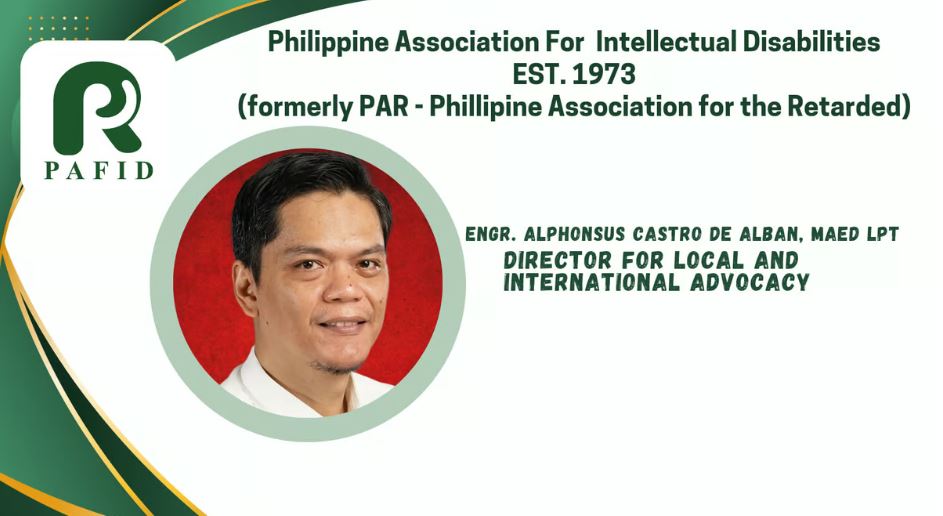It’s not correct to refer to “intellectual disability” as “mental retardation,” according to health experts.
“Hindi siya politically correct kasi nga ginagawa itong pangungutya, pagde-define sa mga bata o mga taong may intellectual disability (It’s not politically correct because it’s being used to ridicule, define children or people with intellectual disability),” said Alphonsus de Alban, director for Local and International Advocacy of the Philippine Association for Intellectual Disabilities Inc., during the Department of Health Kapihan with media partners.
The public forum was part of the observance of National Intellectual Disability Week from 14 to 20 February.
Explaining the right and wrong phrases to use when discussing disabilities and disabled people, De Ablan added, “While itong mental retardation, is, I believe, still ginagamit pa rin siya lalo na ng mga doctors, psychologists, tayo sa society tinanggal ‘yan dahil hindi maganda ang naging karanasan ng ating mga kababayan na may intellectual disability dahil nga ginagamit ito bilang katatawanan or bilang pangungutya (While this mental retardation, I believe, is still being used especially by doctors, psychologists, we, in the society, have removed it because the experience of our countrymen with intellectual disability has not been good because the term has been used as humor or mockery).”
Intellectual disability, according to Dr. Michelle Sy, a fellow in the Child Neurology Society of the Philippines, is neurodevelopment disorders that begin in childhood and are characterized by deficits in intellectual functioning and adaptive functioning.
“Before, mental retardation siya because it’s dependent mostly on the IQ (intelligence quotient) level,” Sy said.
